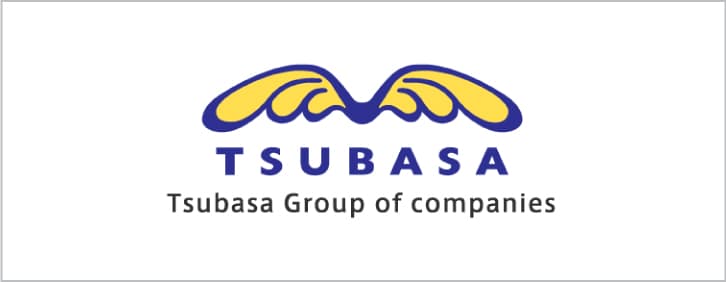What Is a Fixed Expense?
If the company sells 1,000 refrigerators, it spreads the fixed cost of the lease over more refrigerators. The company now incurs a lower cost per unit and generates a higher profit. A Fixed Expense is any expense that does not change from month to month. Fixed Expenses are generally unavoidable and must be paid regardless of your budget.
- Companies have some flexibility when it comes to breaking down costs on their financial statements, and fixed costs can be allocated throughout their income statement.
- Knowing how to include both in a budget is important to avoid overspending.
- The little bit you save on your fixed expenses can add up fast.
- While both are important, getting a clear picture of your business’ fixed costs is crucial.
If you have the space in your budget to set aside a few dollars in an emergency fund each month, you can prepare for the unexpected ahead of time. As you look at your upcoming bills, you should already know exactly what you’ll pay for fixed expenses. For example, fixed-rate mortgages are among the most common ways to buy a home because the monthly payment remains the same for the entire life of the loan. Fixed expenses are helpful for budgeting because they take the guesswork out of the budgeting process. If you could use some more breathing room in your budget, finding ways to save each month can help. How you approach saving money can vary, based on whether you’re trying to cut your fixed or variable expenses.
Budgeting Tips
Not knowing when unforeseen expenses will happen, because they will happen, it’s gratifying to know some part of your budget is stable. (We like to say cash is king.) Whether it’s your auto and homeowners insurance, paying a chunk of money up front can often save you some money. They must be paid first, before you can spend any more of your budget on discretionary spendings, such as entertainment. They are a key factor in determining how much money is available for discretionary spending in a household budget. Once you know your total cost, you can use that number to calculate average fixed cost. For example, if you spend $1,100 instead of $1,185 per month on rent, the quality of your apartment and neighborhood may not change much.

Depending on the type of bill, it may change slightly from time to time based on factors like fees, taxes, and inflation. Other factors that can alter your fixed expenses are refinancing a loan, signing a new lease, or modifying an insurance policy. Typically, adjusting these expenses aren’t payroll processing checklist easily done but keep in mind that they don’t have to be fixed forever. Fixed expenses are important to understand because they represent a significant portion of the total costs of running a business. For many businesses, fixed expenses can be 60% or more of total operating costs.
A company’s management must carefully consider all fixed expenses when making decisions about where to allocate its resources. Fixed expenses are the items in your budget that stay the same month after month . We’re talking about your mortgage or rent payments, gym membership, life insurance, medical insurance or even streaming service costs (Netflix, Disney+ or Hulu). Budget your fixed expenses first, because they make up the majority of your budget and are usually set for longer periods of time. Your variable expenses fluctuate monthly and are easy to adjust as you go, so it’s easier to plan these around your fixed expenses. Fixed costs, sometimes referred to as overhead costs, are expenses that don’t change from month to month, regardless of the business’ sales or production volume.
Fixed vs. Variable Expenses: What’s the Difference?
This could be as simple as creating a spreadsheet or using personal finance software. Compare your actual spending to your budgeted amount each month and make adjustments as needed. To find your company’s fixed costs, review your budget or income statement. Look for expenses that don’t change, regardless of your business’ quantity of output. Any costs that would remain constant, even if have zero business activity, are fixed costs.
- Some of the categories may include variable expenses, while others are fixed.
- A fixed expense just means an expense in your budget that you can expect to stay the same, or close to it, over time.
- These kinds of payments can be the same each month for the entire period of time in which you’re obligated to pay them.
- For your fixed expenses, all you have to do is make a line item with the name (like Rent) and amount ($1,200).
- Regardless, managing fixed and variable expenses can help you reach your financial goals effectively.
Once established, fixed costs do not change over the life of an agreement or cost schedule. Fixed cost refers to the cost of a business expense that doesn’t change even with an increase or decrease in the number of goods and services produced or sold. Fixed costs are commonly related to recurring expenses not directly related to production, such as rent, interest payments, insurance, depreciation, and property tax. These bills don’t have to occur monthly to be considered fixed expenses. For instance, let’s say you have a life insurance payment that you make quarterly.
You could change this expense by moving to a cheaper home or by getting a roommate, but these are major lifestyle changes. When production increases far enough, such types of costs must be increased. For example, additional machinery may need to be purchased to add production capacity. The articles and research support materials available on this site are educational and are not intended to be investment or tax advice. All such information is provided solely for convenience purposes only and all users thereof should be guided accordingly.
fixed cost
Businesses often try to reduce fixed expenses as a way to improve profitability. One way to do this is to renegotiate contracts with suppliers or landlords. Another way to reduce fixed expenses is to find ways to increase efficiency and cut waste. You never know, maybe painting the trim on your rental might be enough to get your landlord to knock a few hundred off your rent here and there.
CreditWise Alerts are based on changes to your TransUnion and Experian® credit reports and information we find on the dark web. You don’t need to blow your whole paycheck at a fancy grocery store to eat well. Shopping at stores like Aldi, Walmart or Kroger (with coupons) can help you save some big bucks.
Fixed Vs. Variable Expenses: What’s The Difference?
Fixed expenses are essential to running a successful business as they make budgeting easier and help you to plan ahead. In this blog post, we will dive into what a fixed expense is and how it can help your business succeed. We will discuss different types of fixed expenses, their advantages and disadvantages, and how you can use them to create an effective budgeting plan. Part of that zero-based budget includes those fixed costs that happen month after month.
Fixed vs. Variable Expenses: What’s the Difference? – CNET
Fixed vs. Variable Expenses: What’s the Difference?.
Posted: Fri, 16 Jun 2023 07:00:00 GMT [source]
Your mortgage, loan payments, and property taxes are examples of fixed expenses. For most people, their food budget changes from month to month, so food is considered a variable expense. We often think of fixed expenses as necessary and variable expenses as unnecessary, but clearly food is a necessary expense! By tracking these costs in your budget, you’ll get a better sense for how much you’re spending on food and will be able to plan more effectively. A fixed expense is an ongoing cost that does not fluctuate with changes in production.
In order to reduce your fixed expenses, it is important to be aware of your spending habits. Track where you are spending your money each month and see where you can cut back. Knowing your fixed costs is essential because you typically don’t know for sure how much revenue you will earn each month. But if you know your fixed costs, you know how much you need to make each month to keep the lights on. You can also plan for a slow period of time by building cash reserves or setting up a line of credit. A fixed expense just means an expense in your budget that you can expect to stay the same, or close to it, over time.
If you’re interested in cutting costs but can’t cut back on materials and labor without sacrificing quality, it’s time to look for ways to reduce fixed costs. Lowering your fixed costs creates automatic, non-optional saving. Not only will you be able to free up money to pay down debt or save for your future, you may not have to give up as much of your lifestyle. With debt repayment, you may be able to save by refinancing or consolidating bills. Taking advantage of a 0% introductory balance transfer offer, for instance, could help you save money on credit card interest.
Fixed expenses provide stability and predictability in your monthly budget. This is helpful when trying to save money or prepare for retirement. Fixed expenses are important because they allow you to budget for a specific amount of money each month. They provide stability and predictability in your monthly budget, which is helpful when trying to save for a financial goal or prepare for retirement. A fixed expense is an expense that does not change from month to month. Many of your variable expenses may end up being fairly predictable.
What is the difference between necessities and discretionary spending? Knowing that you can regain control of your finances is that much better. Just as so many people want to lower expenses, this is probably the best place to start.

If you have a family to provide for, it becomes exponentially more important to decrease spending anywhere you possibly can, at least within reason. Once you start digging into it, you can approach your various financial categories from different angles to either decrease or eliminate them completely. If this is your first go at budgeting or you consider yourself a vet in personal finance, you are sure to find something useful for you today.
There are no guarantees that working with an adviser will yield positive returns. The existence of a fiduciary duty does not prevent the rise of potential conflicts of interest. Writers and editors and produce editorial content with the objective to provide accurate and unbiased information. A separate team is responsible for placing paid links and advertisements, creating a firewall between our affiliate partners and our editorial team.








